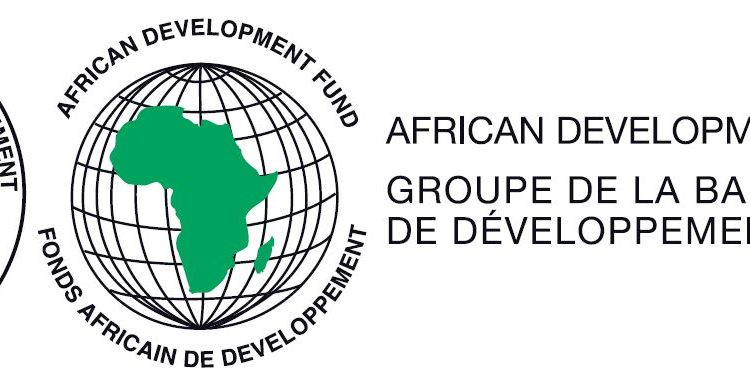Adesina spotlights African Development Bank’s role in delivering Mattei Plan and Global Gateway investments across Africa to drive industrial growth
African Development Bank Group (www.AfDB.org) President Dr. Akinwumi Adesina has reaffirmed the Bank’s central role in advancing Africa’s connectivity, industrialization, and regional integration through strategic investments aligned with Italy’s Mattei Plan and the European Union’s Global Gateway initiative.
Speaking at the joint Mattei Plan–Global Gateway Summit (https://apo-opa.co/3ZJy5Jx) held in Rome on Friday 20 June, Adesina emphasized the progress made by the African Development Bank in turning strategic priorities into action—from infrastructure and energy to digital connectivity and value chains. He called for greater alignment between partners and accelerated delivery on the ground, noting that the Bank’s investments are already helping reshape regional trade and economic resilience.
He underscored for instance the Bank’s catalytic role in the Lobito Corridor, with $1 billion committed over five years for value chain development and urban infrastructure. He also mentioned the development of the Tanzania–DRC–Burundi railway network, where the Bank is helping mobilize a $3.9 billion package alongside international partners. These efforts, he noted, reflect a coherent strategy to transform Africa’s economic geography through inclusive, green growth
Stretching from the Atlantic port of Lobito in Angola to the heart of the continent, the Lobito Corridor is a vital route for moving minerals, goods and people across Angola, Zambia, and the Democratic Republic of Congo—unlocking huge trade and industrial opportunities for landlocked countries.
These developments were highlighted as international partners gathered to align efforts around new cooperation frameworks—the European Union’s Global Gateway (https://apo-opa.co/3I9xwT6) and Italy’s recent Mattei Plan (https://apo-opa.co/4kV5xVV)—which aim to deepen investment with Africa in energy, agriculture, infrastructure, and digital innovation.
Adesina reaffirmed the Bank’s role as a key implementing partner for both initiatives. The Mattei Plan, launched by Italy in 2024, is designed to foster equal partnerships with African countries, with a focus on strategic sectors including energy, agriculture, and migration. The Global Gateway, the EU’s €300 billion investment strategy, similarly targets infrastructure development worldwide, with €150 billion earmarked for Africa.
A cornerstone of this implementation is the operationalization of the Rome Process/Mattei Plan Financing Facility, which is a dedicated mechanism hosted by the Bank to accelerate climate-resilient infrastructure projects. The Facility’s inaugural Governing Council has already met and approved an initial pipeline of operations across energy, water, and transport sectors.
“We have established a Special Fund, and its inaugural Governing Council has already met to begin evaluating projects, including the Lobito Corridor (https://apo-opa.co/4nkyn3K),” Adesina said.
Underscoring the Bank’s leadership, he noted that Africa’s premier development finance institution has invested more than $55 billion in infrastructure over the past decade, making it the largest financier of regional transport corridors in Africa.
European Commission President Ursula von der Leyen reaffirmed the EU’s long-term commitment: “Global Gateway is an investment agenda that combines public and private capital… Africa is a continent of abundance—what’s missing is connectivity.”
Italian Prime Minister Giorgia Meloni added: “These are not top-down initiatives, but concrete projects shaped through dialogue and a shared desire for lasting development. The approach Italy has implemented is clear: respect, responsibility, vision.”
A key pillar of this transformation, Adesina noted, is energy access. He highlighted Mission 300, the joint African Development Bank—World Bank initiative to connect 300 million Africans to electricity and announced ongoing negotiations for a €165 million package with the European Commission to scale up renewable energy under the program.
Adesina urged donors to support a robust 17th replenishment of the Bank Group’s soft loan arm for low-income countries — the African Development Fund – scheduled for this year, to sustain the momentum of the Mattei Plan and Global Gateway. He concluded: “Together, let us do more with Africa.”
In a related development, the African Development Bank has signed a Letter of Intent with the Government of Zambia to advance the development of the Lobito Corridor, a transformative regional transport initiative connecting Southern and Central Africa.
The project entails the construction of approximately 550 km of railway from Chingola in Zambia’s Copperbelt to the Angolan border, as well as the upgrading of 260 km of road between Chisese and Jimbe via Mwinilunga.
The initiative builds on a broader Memorandum of Understanding between the Bank, Zambia, Angola, the Democratic Republic of Congo, and international partners including the United States, the European Commission, Italy, and the Africa Finance Corporation. It aims to strengthen regional trade, improve transport infrastructure, and drive economic integration across the region.
Distributed by APO Group on behalf of African Development Bank Group (AfDB).
Contact:
Jonathan Clayton
Communication and External Relations Department
media@afdb.org
About the African Development Bank Group:
The African Development Bank Group (AfDB) is Africa’s premier development finance institution. It comprises three distinct entities: the African Development Bank (AfDB), the African Development Fund (ADF) and the Nigeria Trust Fund (NTF). On the ground in 44 African countries with an external office in Japan, the AfDB contributes to the economic development and the social progress of its 54 regional member states.


